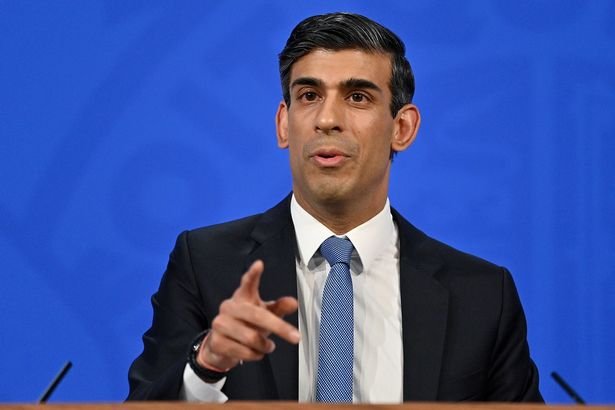Money-saving expert Martin Lewis has explained how much you now need to earn before paying National Insurance following Rishi Sunak’s spring statement.
The Chancellor announced changes to income tax, fuel tax and National Insurance during his spring statement on Wednesday. In response, Martin Lewis shared his “gut response” to what was said during the speech, reports the Mirror.
Lewis shared a video online, which has since gone viral, in which he shared the statement’s top five points that would affect people’s personal finances. Thousands of likes and hundreds of comments were left on the video, with many thanking the 49-year-old for his work.
Read more: Four key points from Rishi Sunak’s spring statement, including fuel tax cuts and national insurance
In the video, he explained: “The Chancellor just sat down in his spring statement with five major announcements that affect people’s personal finances, so I wanted to give you my first gut reaction to what he said. “
His first point was on National Insurance and how it should increase by 1.25 percentage points, meaning those with higher salaries will soon lose more money.
“The big issue was National Insurance,” Lewis said. “Now it’s been pre-announced and has been very controversial that national insurance is set to increase by 1.25 percentage points, which actually increases the amount of national insurance, which is actually a tax on the income for these people by about 10%.People are going to pay 10% more to national insurance because of this increase, roughly.

(Image: Justin Tallis/PA Wire)
“It’s still in place, but to mitigate it, which the Chancellor did, he changed the threshold at which you start paying it. So today you start paying National Insurance a once you earn around £9,600 a year and you start paying income tax once you earn around £12,600 a year From July it moves so those two tiers will be at the same rate which is reasonable.
“So that means you won’t be paying National Insurance now until you earn around £12,600 from July, which is £3,000 more than at the moment. The saving on that is £360 £, but of course once you start paying National Insurance, because of the extra 1.25 percentage points people are going to pay, people are going to pay more.”
So where does this balance out? Lewis says if you earn between £9,600 and £35,000 you will either not pay more for National Insurance than you currently do, or if you are at the bottom of the scale you will pay less.
However, this is bad news for those earning over £35,000, as the 1.25 percentage point increase ‘trumps’ the change in the starting threshold, meaning you will pay more. “The break-even point is around £35,000,” he says. “If you’re below that it’s a game, if you’re above that both metrics are a loss for you.”
Then he focused on the 5p fuel tax cut and how motorists across the country will now pay less to refuel.
This was a slightly more positive point for people as it means “5p less for the Chancellor and 5p more in people’s pockets”. Lewis calculated that would likely be a saving of “just over a pound” on a typical gas tank being filled.
The third point concerned the announcement of the abolition of VAT on domestic energy efficiency measures such as solar panels and heat pumps.
He said it was a “relatively small” gesture and would only be a benefit to “people who could afford to insulate or get better energy efficiency measures”. He added: “It won’t revive anyone in the short term with a huge increased energy cost that we face.”
Fourth, an overview of the £500million given to the Household Support Front which helps vulnerable people. Lewis hoped it would be targeted at household bills and encouraged people to contact their local councils about it if they were struggling to pay their energy bills on a lower income.
“I know some councils have been close to running out of those funds so there will be more money to be able to support you and it’s worth talking to your local council. It’s all about energy, so on energy, not particularly generous.”
Finally, Lewis briefly mentioned Rishi’s “rabbit out of the hat” announcement that from 2024 income tax will drop to 19p. However, he didn’t want to comment too much on that because there are still a few years to go before that happens.
He added: “We know we have the £150 council tax refund for those in Groups A-D in April. You’ll get it in cash if you pay by direct debit if you don’t pay by direct debit automatic, you’ll probably be told how to claim it and if you don’t ask for it, you’ll get it as a discount.
“And then there’s the more controversial £200 loan not loan scheme coming in October. So limited help for energy. But I think what the Chancellor would say is…
More about this article: Read More
Source: www.chroniclelive.co.uk
This notice was published: 2022-03-23 21:59:34
